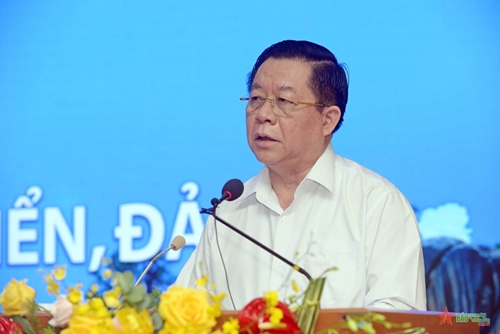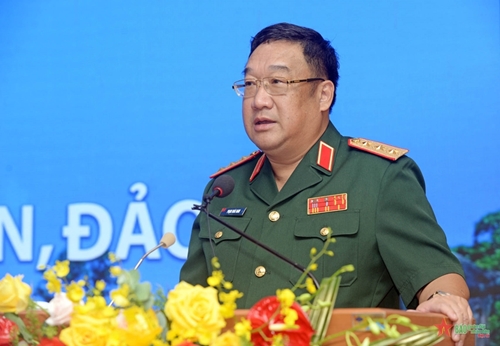Speaking at the event, Editor-in-Chief of the Communist Party of Vietnam Online Newspaper Tran Doan Tien affirmed that the coordination between civilian and military medical forces is one of the traditions of Vietnam’s health sector. It was set up in the first days of August Revolution and consolidated during the resistance wars for national independence and national construction and defense cause.
In wartime, the civilian and military medical forces closely cooperated to take care of troops and people in different theaters. In peacetime, the coordination between the two forces has created a combined strength in taking care of the people’s and troops’ health and contributed to creating a local military medical force for combat missions and natural disaster and disease prevention tasks.
The military-civilian medical coordination program was officially launched in 1990 by the Health Ministry and the Ministry of National Defense. Over the past years, the program has been carried out in mountainous and remote areas, at sea and on islands, and in key defense - security areas.
At the event, Head of the Party Central Committee's Commission for Information and Education Nguyen Trong Nghia said that Vietnam has 125 coastal districts and 12 island districts under 28 provinces and cities, which play an important role in the socio-economic development and protection of national sovereignty over sea and islands. Therefore, strengthening medical network, including the implementation of military-civilian medical coordination program, is an important mission that directly serves the sea-based economic development strategy of Vietnam.
The official said that as the State’s investment in healthcare at sea and on islands is limited, the military-civilian medical coordination model is an effective measure to ensure healthcare for troops and the people.
    |
 |
|
Head of the Party Central Committee's Commission for Information and Education Nguyen Trong Nghia addresses the event. |
He affirmed that the program has not only helped military medical personnel raise their skills, but also provided facilities for training of on-the-spot medical staff and taken full advantage of equipped medical facilities. Activities within the program have contributed to boosting solidarity between troops and the people, strengthening people’s trust in the political system, and consolidating the whole people’s defense posture and people’s warfare posture in key areas.
The head of the Information and Education Commission affirmed that this seminar was an important event, demonstrating the Party’s and State’s care for troops and people on islands. It also created an opportunity for delegates to evaluate and affirm the importance and achievements of the model, draw experience in taking care of troops and the people at sea and on islands, and make recommendations to the Party and State to devise mechanisms and policies on military-civilian medical coordination at sea and on islands.
In addition to that, reports delivered at the seminar would help complete legal documents on and the organization of military-civilian boards at all levels and serve as information dissemination to encourage troops and fishermen to continue working at sea and firmly protect national sovereignty over sea and islands.
Delivering a report at the event, Deputy Defense Minister Senior Lieutenant General Pham Hoai Nam recalled that over the past time, the Ministry of National Defense and the Ministry of Health have directed and guided localities to boost the effectiveness of military-civilian medical coordination model to take good care of troops and people at sea and on islands.
He said that the Ministry of National Defense highly appreciated the establishment and operation of Truong Sa Medical Center. Together with taking care of troops and people on the islands, the center has actively provided emergency care for distressed fishermen at sea and coordinated with other forces to take them ashore for further treatment. These deeds have contributed to enriching the tradition of Uncle Ho’s soldiers and firmly safeguarding national sovereignty over sea and islands.
    |
 |
|
Deputy Defense Minister Senior Lieutenant General Pham Hoai Nam at the event |
At the event, reports highlighted that the establishment of the military-civilian medical coordination model is a sound guideline of the Party and State. It has contributed to raising the people’s and troop’s health and strengthening the whole people’s defense and security postures to firmly safeguard national sovereignty.
Apart from reviewing outstanding achievements, delegates also drew experience in carrying out the model over the past three decades and proposed measures to raise the effectiveness of the work in the coming time.
Translated by Hoai Oanh